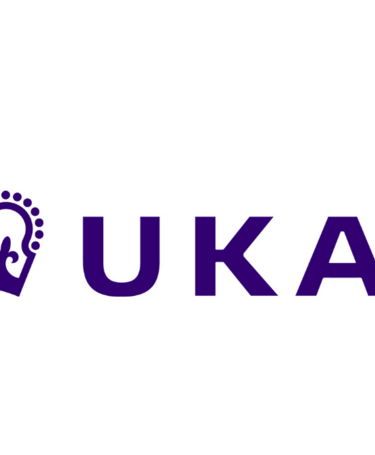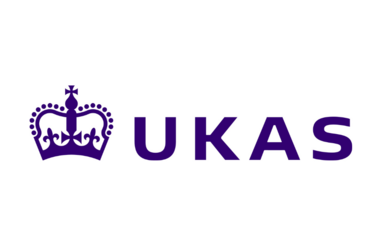
UKAS CertCheck: Taking uncertainty out of the supply chain

Jeff Ruddle, Strategic Development Director at UKAS, outlines the organisation’s recently-launched UKAS CertCheck, a database of more than 300,000 management systems certifications issued worldwide by UKAS-accredited certification bodies. UKAS CertCheck will help organisations streamline their procurement processes and identify fraudulent accreditation claims.
Verifying whether potential suppliers hold accredited certification is vital in building a reliable supply chain. The two-stage verification process can be a lengthy chore for organisations that need to independently check the authenticity of each supplier’s certification, leading to delays in the procurement process and additional costs.
The free-to-use UKAS CertCheck database streamlines the process by automating and combining certification and accreditation verification stages into one comprehensive online service, which allows companies to check the standing of any supplier quickly and easily.
“It is about reducing barriers to people finding out that something is UKAS accredited and providing that additional layer of confidence in the accredited certification of the supply chain,” says Jeff Ruddle, Strategic Development Director at UKAS.
“UKAS has a responsibility to do everything within its power to reduce instances of fraudulent claims of accredited certification, and UKAS CertCheck will obviously be very useful in assisting with that.
“Some organisations mandate UKAS-accredited certification for organisations within their supply chain. With some organisations having very large supply chains so, rather than having to check each time, organisations will now be able to set an alert on a particular certification so they get a notification if there is a change in the certification status.
“There can be a lot of confusion around the terms of accreditation and certification. Some people will say they are UKAS accredited when they’re not; they are certified by a UKAS-accredited certification body. They are not doing it for any nefarious purpose, it is just confusion. However, UKAS CertCheck actually deals with certifications, so if someone claims they have a certification that they don’t, then that will be quickly established by the organisation checking the certification.”
UKAS has a responsibility to do everything within its power to reduce instances of fraudulent claims of accredited certification, and UKAS CertCheck will obviously be very useful in assisting with that.
Which standards are covered?
With more than 300,000 management systems certifications in its database, UKAS CertCheck covers a wide range of those commonly used. Key ones include: ISO 9001:2015 Quality management systems; ISO 14001:2015 Environmental management systems; ISO 45001:2018 Occupational health and safety management systems; ISO 27001 Information security management; ISO 28000:2022 Specification for security management systems for the supply chain; and ISO 50001:2018 Energy management.
Also included are more sector-specific standards such as: ISO 22000:2018 Food safety management systems; ISO 13485:2016 Medical devices – Quality management systems; and ISO 39001:2012 Road traffic safety management systems.
Stakeholder support
Developing CertCheck has been a lengthy process for UKAS, which worked with the Australian-based technical provider QualityTrade to build the database. The project also had significant support from key stakeholders, including certification bodies (CBs) for which it was mandatory to supply data to the CertCheck database.
“The reason we made it mandatory was because if only half of them had put their data into this database, then a user would not know if an organisation was not appearing in the search results because they were not certified or because their CB just hadn’t added their data. That would create confusion, which is why uploading certification data to CertCheck had to be mandatory,” Jeff says.
“Some CBs were initially concerned about the security of the system, but we have done a huge amount of work around data protection. We also explained that we were going to support this project by creating marketing assets that they could use to promote it to their customers; it is a big tick in terms of quality assurance.
“We did take a cautious approach initially, but we had the support that we needed; the stakeholder organisations have been very helpful.”
Data security paramount
Data security was a significant issue in the success of the development, says Jeff.
“The CBs – understandably – wanted to know from the outset what our security measures were going to be; this is important customer data for them so they needed to be very confident in the security measures. They were also concerned that a competitor might be able to access their data behind the scenes, which is a completely reasonable concern for commercial organisations to have. Security is a majorly important aspect of this project and we have many measures in place to ensure that data is protected, as much as it possible.”
The road ahead
The long-term aim is to roll UKAS CertCheck out across multiple areas of certification, but management systems certification is the key focus now.
The database has already drawn praise from Wayne Terry, Chief Executive of the Association of British Certification Bodies, who says: “It is an unfortunate fact that some unscrupulous organisations or individuals prey upon the complexity of the existing certification verification process, allowing them to pass off fraudulent or misleading claims, which, was amplified during the Covid-19 pandemic. In addition, defrauding the procurement process undermines the hard work that many organisations go through to achieve valid accredited certification. UKAS CertCheck will give confidence to organisations that rely upon accredited certification, helping them ensure those claims are valid.”
Learn more about accreditation from Emanuele Riva, the Chair of the International Accreditation Forum.